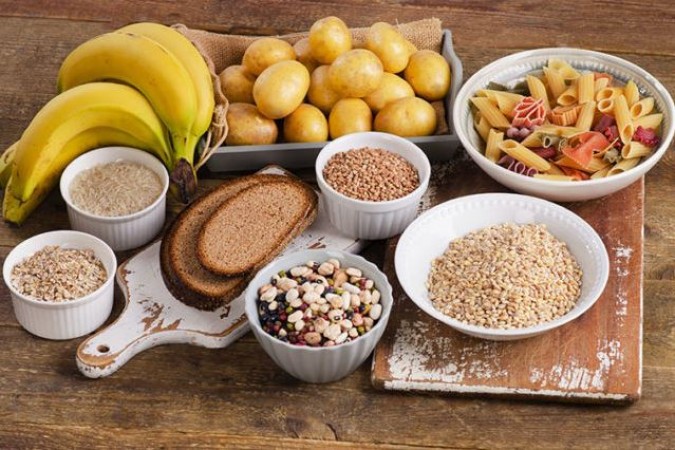
In recent decades, the global prevalence of diabetes and obesity has reached alarming levels. Both conditions are closely linked to lifestyle factors, and one of the key contributors is the excessive consumption of carbohydrates. Carbohydrates are essential nutrients that provide energy to the body, but their overconsumption can lead to detrimental health outcomes. This article delves into the relationship between excessive carbohydrate intake, diabetes, and obesity, and offers practical strategies to help individuals manage their carbohydrate consumption and mitigate the associated risks.
Understanding Carbohydrates
Carbohydrates are one of the three main macronutrients, alongside proteins and fats. They serve as the primary source of energy for the body, fueling various bodily functions, including physical activity, cellular processes, and brain function. Carbohydrates are categorized into simple and complex carbohydrates, based on their molecular structure and how quickly they are digested and absorbed by the body.
Simple carbohydrates, often referred to as "sugars," are found in foods like candy, sugary beverages, and baked goods. They are quickly broken down into glucose, causing a rapid spike in blood sugar levels. On the other hand, complex carbohydrates, found in foods like whole grains, legumes, and vegetables, take longer to digest and provide a more sustained release of glucose into the bloodstream.
Excessive Carbohydrate Intake and its Impact
While carbohydrates are a necessary part of a balanced diet, consuming them in excess can have negative consequences for health. Here's how excessive carbohydrate intake can contribute to the development of diabetes and obesity:
Insulin Resistance: Overloading the body with carbohydrates, especially simple sugars, can lead to insulin resistance. Insulin is a hormone that helps regulate blood sugar levels by facilitating the uptake of glucose into cells. When cells become resistant to insulin, they struggle to absorb glucose effectively, resulting in higher blood sugar levels and an increased risk of diabetes.
Weight Gain and Obesity: Diets rich in carbohydrates, particularly refined carbohydrates, can contribute to weight gain and obesity. High-carbohydrate foods often lack the fiber and nutrients present in whole foods. This can lead to overeating, as these foods may not provide a sense of fullness and satisfaction, ultimately promoting weight gain.
Fluctuations in Blood Sugar: Excessive carbohydrate consumption can lead to rapid spikes and crashes in blood sugar levels. These fluctuations can result in increased hunger, cravings for more carbohydrates, and a cycle of overeating.
Storage of Excess Glucose as Fat: When the body's glycogen stores are full, excess glucose is converted into fat and stored in adipose tissue. This contributes to an increase in body fat percentage and can eventually lead to obesity.
Increased Risk of Type 2 Diabetes: The combination of insulin resistance and elevated blood sugar levels can lead to the development of type 2 diabetes. This chronic condition impairs the body's ability to regulate blood sugar, leading to various complications over time.
Managing Carbohydrate Consumption
The good news is that individuals can take proactive steps to manage their carbohydrate intake and reduce the risk of diabetes and obesity. Here are some practical strategies:
Choose Whole Foods: Opt for whole, unprocessed foods that are rich in complex carbohydrates. These foods, such as whole grains, fruits, vegetables, and legumes, contain fiber, vitamins, and minerals that support overall health and provide sustained energy.
Mindful Portion Control: Pay attention to portion sizes to avoid overeating. Even nutritious foods can contribute to weight gain if consumed excessively. Using smaller plates and bowls can help control portion sizes.
Prioritize Fiber Intake: Fiber-rich foods slow down the digestion and absorption of carbohydrates, leading to more stable blood sugar levels and improved satiety. Aim to include a variety of high-fiber foods in your diet, such as whole grains, vegetables, and beans.
Limit Added Sugars: Be cautious of foods and beverages that contain added sugars, such as sugary snacks, sodas, and desserts. These contribute empty calories and can lead to rapid blood sugar spikes.
Balance with Protein and Healthy Fats: Including lean proteins and healthy fats in your meals can help stabilize blood sugar levels and promote feelings of fullness. Sources of lean protein include poultry, fish, beans, and tofu, while healthy fats can be found in nuts, seeds, avocados, and olive oil.
Choose Low Glycemic Index Foods: The glycemic index (GI) measures how quickly a carbohydrate-containing food raises blood sugar levels. Foods with a low GI are digested more slowly, resulting in gradual blood sugar increases. Examples include whole grains, sweet potatoes, and most fruits.
Regular Physical Activity: Engage in regular exercise to improve insulin sensitivity and aid in weight management. Physical activity helps the body utilize glucose more efficiently and supports overall metabolic health.
Stay Hydrated: Drinking enough water is essential for maintaining optimal metabolic processes. Water consumption can also help control appetite and prevent overeating.
Excessive carbohydrate intake plays a significant role in the development of diabetes and obesity. By adopting mindful eating habits, choosing nutrient-dense foods, and balancing carbohydrate consumption with protein and healthy fats, individuals can significantly reduce their risk of these conditions. Remember that every individual's dietary needs are unique, so it's important to consult with a healthcare professional or registered dietitian when making significant changes to your diet. Taking proactive steps to manage carbohydrate consumption is a crucial component of a healthy lifestyle and a step towards preventing the onset of diabetes and obesity.
Global Summit on Traditional Drugs: Bridging Ancient and Modern Practices, says Mandaviya
Embrace Besan: 5 Creative Ways to Boost Your Diabetes Diet
Is Chicken Good For Diabetics? Exploring the Diabetes-Friendly Benefits of Chicken Consumption